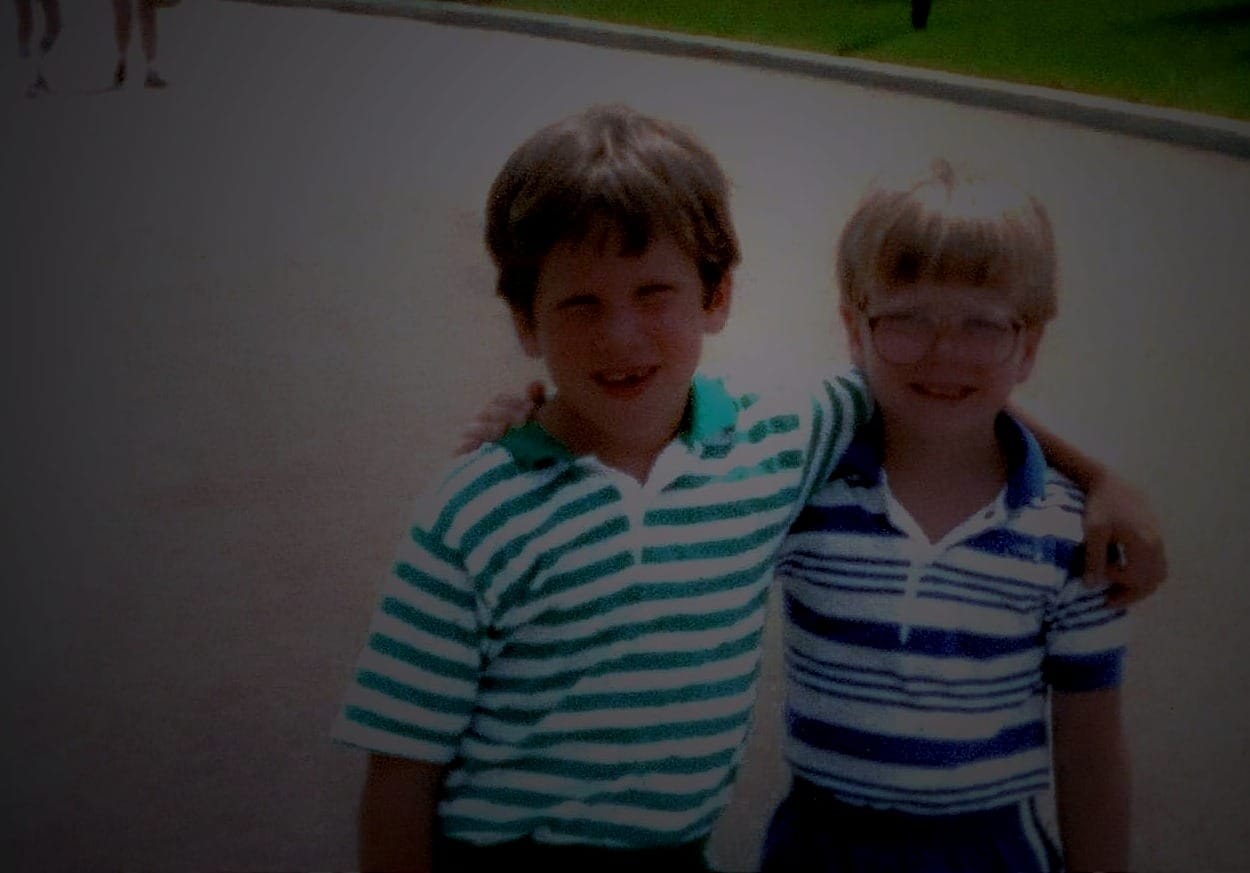Intro 🚀 | Sober, still late

"We drank to remember to forget."
—Joy Harjo
> 35,000 decisions | intro
After years of crippling alcoholism, I just assumed sobriety would make me a better person.
I also just assumed it would reverse a distinguished record of being almost angrily unpunctual.
- Learning how such assumptions lead to errors in the human mind again and again has profoundly changed how I view the world. It could do the same for you.
I see now that I had wildly unrealistic expectations about the dividends of sobriety.
There can't be an obvious, logical correlation between my last drink and someone else's subjective perception of me as "a better person."
Scientists who study the human mind would call my abundance of optimism a cognitive error, a fallacy, or a lapse in judgment.
My name is G.W. (George) Schulz. I'm an Emmy-winning former journalist who grew up in Tulsa where I live today.
I once dreamed of teaching media effects and the human mind to young people.
I also used to drink. Hard.
During graduate school at the University of Texas in Austin, I became captivated by the shadowy workings of the human mind.
That's when I read a spellbinding book on human psychology called "The Undoing Project" by journalist Michael Lewis (author of "Moneyball").
Along with my graduate research on audience behaviors, "The Undoing Project" led me to become obsessed with how we think.
God Don't Make No Trash began in 2023 as a pile of scribbled notes and photos. It accelerated in the summer of 2024. The project is built from bite-sized stories:
- Each story will be 300 words or less.
- Each email will contain one to two stories.
- Two to three emails will arrive each week.
Stitched together, these stories form larger, ongoing narratives.
With God Don't Make No Trash, I hoped to illuminate the human mind for you and me both. One extraordinary statistic stands out:
Scientists say we make 35,000 decisions daily.
There's no time to consciously probe them all for errors and fallacies and lapses. To try would paralyze us with indecision.
Our minds naturally and automatically rank quickness in decision-making over accuracy and truth. This leaves us endlessly prone to cognitive errors we can't consciously see or understand.
Our thoughts and behaviors are irrational far more often than we realize, scientists say.
"We are all in the gutter," playwright Oscar Wilde mused, "but some of us are looking at the stars."
Our minds cognitively misfire with stunning frequency and in conflict with our own stated wishes.
Whether we call them misfires or errors or ghosts doesn't matter to them.
They slink undetected through the gloomy, inky darkness of our subconscious, intuitive minds.
- They are routinely exploited by powerful politicians and Wall Street corporations.
We don't have the conscious control over ourselves we imagine. Consider these ugly truths:
- We smile more at conventionally attractive people.
- We're more likely to vote for attractive people.
- We’re less likely to convict attractive people.
These are human tendencies we would all deny. These are human tendencies that make us all look a little trashy.
We don't see the sneaking, slithering ghosts. We don't see that "trash" is a human construct made of nothing.
But with burning lanterns and glinting, effortful knives, we can chase them ghosts into the streets.
- next time "It's all Christians and breeders. Let's drink."
- listening Bruce Springsteen "The Ghost of Tom Joad"
>> full series | alerts | playlist / social | tip jar

